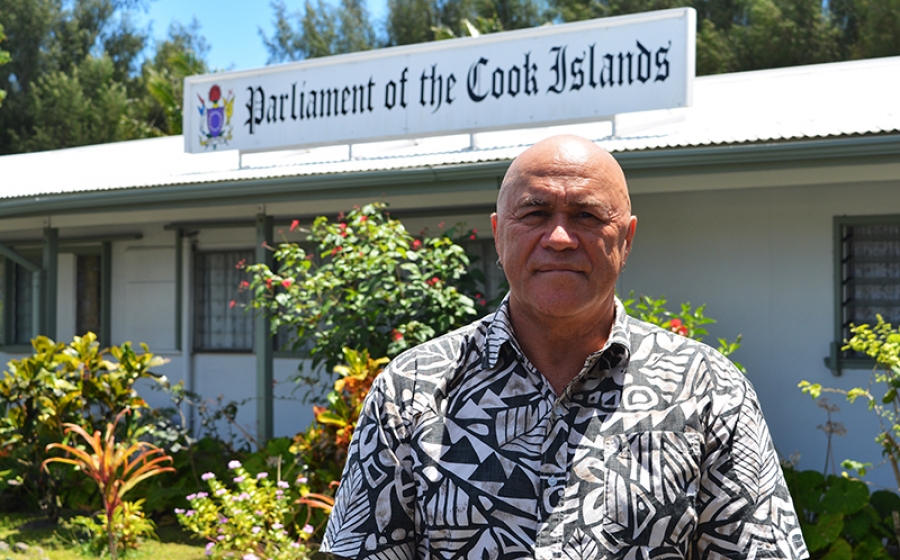Te Tuhi Kelly: Trumps ‘America First’ mantra
Wednesday 5 February 2025 | Written by Te Tuhi Kelly | Published in Editorials, Opinion

Te Tuhi Kelly. PHOTO: COOK ISLANDS NEWS/191011111
Te Tuhi Kelly, Leader of the Progressive Party states President Trump is passing executive orders with a flourish, because he has to satisfy his voters and supporters.
I question whether he has considered the downstream effects of those orders arising from his stated focus on an ‘America First’ mantra.
If it aint what he thinks is of benefit to America, then it will die a natural death. Unfortunately, this natural death will be prolonged and agonising for many pacific nations especially those who are part of the Pacific Islands Forum (PIF) who rely partially on funds from the USA.
The downstream effects can be significant—especially for countries that rely on US funding, trade, or diplomatic support. His approach often prioritises short-term political wins over long-term global stability.
The freezing of funding could put small island nations in a tough position, especially if they are already juggling debt and economic uncertainty. How to react to this is not a simple answer. We've become welfare beneficiaries in our rush to embrace capitalism. We are damned if we do or damned if we don't. We borrow beyond our means because we aspire to goods and services to improve our quality of life. We know not what we do and hence the approach is to borrow more.
Many Pacific nations, including the Cook Islands, are caught in a cycle where economic aspirations outpace sustainable financial management. The reliance on external funding, whether from China, the US, or other development partners, has created a dependency that limits true economic sovereignty. The dilemma is real:
• Embrace capitalism fully → Risk deeper debt, reliance on foreign loans, and economic policies that may not align with traditional values or long-term sustainability.
• Reject it or limit borrowing → Struggle with infrastructure development, service delivery, and maintaining a modern standard of living.
The “borrow more” or scab off other sources approach has become the default because there’s often no alternative presented. But at some point, the debt burden forces tough decisions—cutting services, increasing taxes, or taking economic risks like deep-sea mining.
The question that needs to be addressed is, are we too far into this cycle to turn back? Well to be fair, it is rebellion or revolution. One is short term gain long term pain. The other is long term pain for short term gain. The point is, we are tied inexplicitly with all global economies. We have no control over this unless we close the borders and isolate ourselves and return to a subsistence economy almost communistic.
Because that’s the crux of the issue—there’s no easy way out. The Cook Islands, like many Pacific nations, is deeply entangled in the global economy. Isolation isn’t a realistic option, but full economic integration with capitalism has left the country vulnerable to debt traps, external political pressures, and resource exploitation such as our fisheries or the push for deep sea mining.
Rebellion and revolution, in a modern sense, might not take the form of physical uprisings but rather economic and political shifts:
• Rebellion: A short-term pushback—perhaps rejecting deep-sea mining, refusing new foreign loans, or demanding greater economic transparency. But without a clear alternative, this could lead to economic hardship and social instability.
• Revolution: A long-term restructuring—diversifying the economy, investing in self-sufficiency, and reshaping governance to prioritise sustainability over debt-driven development. This is painful because it requires time, sacrifice, and a major shift in mindset.
The reality is that Pacific nations don’t have full control over their economic fate. The global supply chain, climate change, geopolitical conflicts, and external funding conditions all shape national decisions. Unless there’s a unified regional stance, each island nation will remain vulnerable to the interests of larger powers.
More importantly it is becoming clear that for pacific islands, it is each to their own. The recent inauguration of the President of Palau shows that the Pacific Islands Forum is creaking at the seams. The absence of many of Palau’s brother islands who are reliant to some extent on Chinese largess economically speaking shows that all is not well. In 2021 with 5 island states withdrawing because of a ‘gentleman’s’ agreement for leadership of the forum was a watershed for the PIF.












































